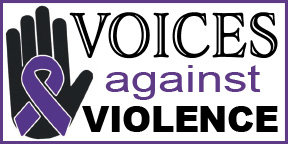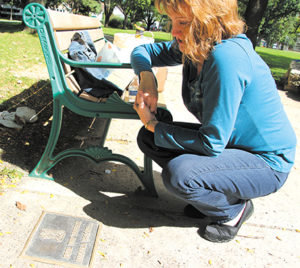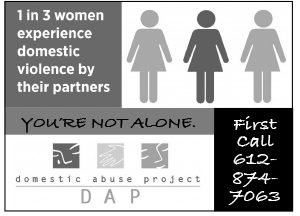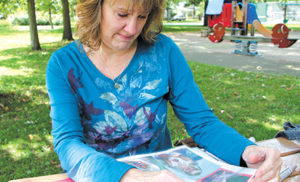
Mikayla Olson Tester might be a happy 21-year-old woman today if the family court system had listened to the warnings of her mother.
Instead, it’s been 15 years since she was murdered by her own father, and the weight of not being believed by the court system still weighs heavily on mother Leigh Ann Block (fomerly Olson). She has spent the last 15 years putting together the pieces of this tragedy, trying to figure out how to prevent this from happening to anyone else.
“Fifteen years later I’m trying to protect women and children from going through what we did because I can’t save her,” said Block.
“It should never have happened.”
Calculated murder 2 weeks after he took daughter on vacation

Mikayla Olson Tester would have been 21 on Nov. 29, 2019. Because of her spirit, her mother Leigh Ann Block is still fighting for other kids in abusive situations with an unhealthy and dangerous parent. She was her mother’s “sweetie-girl." Her daycare provider called her Cinderella and brought her to Mattock’s Park to play. She called herself “Mika” when she was little because she couldn’t say “Mikayla.” She loved her family, music, Disney princesses – especially Ariel, dressing up, playing with stuffed “aminals,” and her cat Smokey. Her mother remembers going on walks with godmother Kris, and Mikayla’s blond hair flying in the wind. “Feel the breeze, Mikayla Nicole,” Block would say.[/caption]
It was her father’s turn to have the five-year-old on Labor Day weekend 2004, right before she was going to start kindergarten at Randolph Heights School.
The Ramsey County court had given St. Paul resident John Tester, age 41, joint custody and over 50 percent parenting time, over the objections of Block.
Her ex-husband prevented Block from caring for Mikayla and threatened and intimidated them both. But the people she tried to get to protect her and Mikayla failed.
The police, a custody evaluator, mediator, attorneys, Referee Earl Beddow Jr., and Judge Michael F. Fetcsch didn’t pay attention to his threats, coercive control or post-separation abuse, and instead gave him the standard custody and parenting time schedule.
“I tried to do everything within my power to protect her but the law was not on my side,” said Block.
On that day 15 years ago, when Block answered the door of her home she shared with Mikayla, and saw two St. Paul police officers, she knew the news was bad.
It was the news a battered woman fears most.
“Mikayla is dead, isn’t she?”
Block knew without being told. She had received a strange call from her ex-husband earlier that day. He had instructed their only child to call Block and tell her they were going on a journey in a new car.
Tester then took his daughter to a rural Wisconsin road outside of Osceola on Saturday, Sept. 4, 2004, shot her in the head, and then turned the gun on himself.
It was over three years since the couple had split up.
Tester’s sister-in-law, Gina, told the Star Tribune that Tester had done it to get back at Block.
The Polk County Sheriff’s Department called it a “cold and calculated murder” that took months to plan.
“I had warned the courts that Mikayla’s life was in danger,” said Block, a smart, capable and respondible woman.
But no one in the family court system believed her in time to save her daughter. The fact that no one in the justice system did anything to protect her daughter still haunts Block.
“Despite a well-documented history of threats to abuse me and my child, my ex-husband was allowed to have unsupervised visitation with our daughter,” said Block. “John’s abusive behavior did not affect the custody/parenting time decisions. It was clear to me that the domestic violence and threats to harm me and our daughter had no impact on the court.”
Mikayla’s funeral was held on the day she was supposed to start kindergarten.
Court wouldn’t let her protect daughter from father
Block’s attorney, Mark Anderson of Burnsville, told the St. Paul Pioneer Press shortly after Mikayla was murdered by her father that Block lived for her daughter. “She was a very, very dedicated mother; and she did everything she could to protect that little girl from people, but it was the one guy she could never do anything about because he had court-ordered visitation,” observed Anderson.
In their divorce decree, they shared joint legal custody. Tester was granted parenting time of 4.5 hours with Mikayla on Mondays, Wednesdays and Fridays, as well as from 9 a.m. Saturday to 5 p.m. Sunday on alternating weekends. “Even though I had sole physical custody, Mikayla’s father had over 50% of the parenting time and spent more quality time with our daughter. I ‘agreed’ to this arrangement because I had no choice,” said Block, after her first attorney, Martha Eaves (SMRLS), told her to “quit pushing John’s buttons.” Eaves also told Block that the courts would grant him 50% custody anyway.
 Leigh Ann Block visits the bench in Mattock's Park dedicated to her daughter, Mikayla Olson Tester, who was murdered by her father on Labor Day weekend 2004 at age 5. (Photo by Tesha M. Christensen)
Leigh Ann Block visits the bench in Mattock's Park dedicated to her daughter, Mikayla Olson Tester, who was murdered by her father on Labor Day weekend 2004 at age 5. (Photo by Tesha M. Christensen)Nightmare began after baby was born
Block graduated from Central High School in St. Paul in 1985, the same school her grandparents and mom had attended. She got a good job at Montgomery Ward, and met John Tester a year out of high school through mutual friends.
They dated off and on between 1986 and 1998, when they got married at Como Conservatory because they had a baby on the way.
Block remembers that Tester was competitive and compared himself to others constantly. He really enjoyed boating, and they had lots of fun on the weekends. But it wasn’t until she gave up her apartment and moved into “his house” on Palace St. (he never called it theirs even after they got married) to save money, that she felt trepidation about marrying him.
Things started gradually. Like many men, he didn’t really start showing his abusive side until their daughter was born when the focus was no longer on him, although Block can look back now and see some earlier red flags.
“It’s supposed to be the happiest time in your life when you have a baby,” observed Block, “but that’s basically when my nightmare began.”
From the time Mikayla was born, Block remembers that her ex-husband would get angry at the amount of care and attention Block gave her.
Sometimes he would pin her down on the bed and make her listen to their daughter’s screams in the next room.
They both agreed that Block would stop working when their daughter was born, and care for the baby, as well as manage the care for Block’s dad who was battling Stage 4 carcinoma cancer and lived with them. She was dependent upon her husband, and that was just how he wanted it.
She timed her trips out of the house to fall when Tester wasn’t home, and made sure she was back before he was. It wasn’t easy, though, as he called her regularly to make sure she was at home. He wanted to know exactly what she was doing when he wasn’t around and who she was with. He followed her from room to room to listen to her phone conversations. She started keeping journals to track what her husband was doing, and asked her best friend to hide them.
He started threatening to kill Block and their daughter on a weekly basis, sometimes while holding a large knife in his hand, and mimicking killing motions. Ten minutes later he would deny everything. The gaslighting became more regular.
“He was very smart,” said Block. “He never physically left marks.”
He told her she was fat and made fun of her crooked teeth. He told her that she’d never find anyone as great as himself if she left him. She remembers suffering from the cognitive dissonance of hearing him talk about how great he was and listening to the terrible things he said to her.

At night, when the baby was hungry and started to cry, he screamed at Block to “shut her up! Some of us have to work.”
Due to his rages and his frequent marijuana use, Block avoided leaving Mikayla home alone with him. “It’s a horrible thing to not want to leave your children with their father,” Block remarked.
At home, Block did all the childcare while Tester went boating or snowmobiling with his friends almost every weekend, but out in public Tester was a doting dad. In fact, five months before he murdered Mikayla, he took her to Disney World.
He tightly controlled their finances, and gave her a paltry $20 a week allowance. Friends and family helped Block buy diapers and other baby things.
She told herself that she was going to “stick it out” until Mikayla was in kindergarten.
Then came the day in March 2000, when she couldn’t stop herself from calling the police because she was so scared. It was a Saturday, and she had planned to buy tickets for “Bear in the Big Blue House.” Tester refused to let her leave the house, so she called her sister-in-law to tell her she couldn’t go. Angry, Tester ripped the cordless phone out of her hands. She ran to another room to use the old-fashioned wall phone, and told her friend that “things aren’t ok right now,” and returned upstairs. His behavior was so threatening that she grabbed the cordless phone again, ran out on the porch, and called 911. The phone went dead when he ripped the line out of the wall.
When the three squad cars arrived, Block asked herself, “What have I done? He’s going to kill me.”
She obtained her first order for protection (OFP), and he was banned from the house except to pick up Mikayla for visits. Angry that he’d been kicked out of “his house” due to an order for protection, Tester filed for divorce. Block had no money for another home, daycare, or an attorney.
 Leigh Ann Block (formerly Olson) pages through a photo album of her daughter, who was murdered by her father 15 years ago.
Leigh Ann Block (formerly Olson) pages through a photo album of her daughter, who was murdered by her father 15 years ago.Post-separation abuse unchecked
Fearing what Tester would do despite the OFP, Block put a baby monitor in the garage. Tester worked third shift, but one night she heard a noise in the garage and called the police. The cops found him inside with the hood of her vehicle up and a quart of oil sitting by the open gas tank. He told the cops he was just there to pick up some tools. He was arrested for violating the OFP.
The morning after Halloween, Block looked out the window of her new apartment, and her Blazer was missing again. She had changed the vehicle’s door key after an earlier suspicious incident, but not the ignition key. She reported it stolen, and three weeks later it was found wrapped around a tree in Rochester. It had been involved in a vehicular homicide when two kids took it on a joyride despite the passenger seat having been cut out.
Shortly after, Block flipped through the notebook she and Tester exchanged with their daughter, recording important details to share with the other parent. Inside, she found the ignition key to her Blazer.
Tester was letting her know he could get to her, despite the OFP and their divorce papers.
Before he murdered Mikayla, Tester quit his job in order to get his child support reduced, and then worked secretly for cash while receiving unemployment benefits.
Tester put Mikayla in the middle of Block and himself, because he couldn’t control Block any more as she started a new life with Mikayla. Mikayla started asking her mother distressing questions like, “why is Daddy mean?” One day Mikayla asked her mom if she was going to die. “No,” Block told her. “Why do you ask?” “Because Daddy said you were,” replied Mikayla. He told her that if mom starting dating that she wouldn’t love Mikayla anymore.
He stole and refused to return their daughter’s favorite stuffed animal, even though she had trouble sleeping without Hippity. He told their daughter she was fat.
Block was always on alert, waiting for the next thing to happen.
Tester continued to threaten Block and yell obscenities at her during exchanges of Mikayla. But when she told the officials involved in their case – the people she thought were supposed to help her – they didn’t give him any real consequences. After Tester tampered with Block’s vehicle, he had been instructed to see Mikayla at the Children’s Safety Center for supervised visitation. After a month or two, Tester wanted to take Mikayla to a family reunion, and Ramsey County custody evaluator Kelly Gerleman allowed it, despite Tester’s threats to take Mikayla away from Block and despite his threats to kill them both. Moreover, Gerleman removed Mikayla from the Safety Center indefinitely. Gerleman told Block, “John needs to be given the chance to demonstrate good behavior.”
Block was warned by officials that if she fled with her daughter, she would be arrested for kidnapping. And then, Tester killed Mikayla.
Block called each one of these professionals after Mikayla was murdered, but she never got an apology, nor did any suffer consequences in their jobs for their role in Mikayla’s death.
“They failed miserably,” said Block. “I didn’t get any help. Nobody listened to me. I was not some crazy ex-wife. I was a loving mother trying to protect my child. This is what parents are supposed to do – keep their children safe from harm. There’s something really wrong with the system and that’s an understatement.”
She added, “They were minimizing. I still feel like I’m being minimized because I didn’t have any bruises.”
Not hit, but still victims of abuse
Block is tired of hearing the common myth that “it takes two to tango.”
She’s tired of the stereotypes about the kind of woman who gets abused. “It doesn’t matter how much money you make or your status,” she observed. She doesn’t think people want to believe that someone with a few kids who lives in a nice house could be an abuser or a victim, but that doesn’t stop it from being true.
She’s tired of hearing that women are vindictive and make up abuse to get back at their spouses. She’s ready for people to start believing women and children.
“Abuse survivors are constantly trying to prove themselves,” she observed. “There should be no question.” She supports a national resolution, H. Con.Res.72, “expressing the sense of Congress that child safety is the first priority of custody and visitation adjudications, and that state courts should improve adjudications of custody where family violence is alleged” (115th Congress). This resolution makes it standard to put the safety needs of children first rather than parental rights, and Block and friend Bonnie Roy are pushing for state legislation that will also support putting the safety of children first through the Minnesota Chapter of the Stop Abuse Campaign.
Block began recording her abuse in journals in the spring of 1999, and now it’s 2019. Kids are still not being protected, despite the Adverse Childhood Experiences (ACEs) research on how much kids are affected by threats, intimidation and physical violence.
“I may not have been hit, but Mikayla was still a victim of domestic violence,” she said.
“There’s still no law that protects children in abusive situations.”
Minnesota has nine best interest factors, and only one is related to domestic violence. “The best interest is not putting your children with an abusive father,” said Block. She believes that if a parent is abusive, they should not have joint custody. They should not have access to their children.
“I want to be part of a positive change that will prioritize these kids’ lives,” said Block.
And so she keeps telling her story.
“We shouldn’t have to beg for these laws to protect our kids,” said Block.
“We need to start looking out for each other.”
She has devoted her time to promoting prevention, testifying at government hearings against 50/50 custody laws, and speaking out so that no more children die because of domestic violence.
According to the Center for Judicial Excellence, at least 728 children have been murdered by a divorcing or separating parent since 2011. Seventy-three percent of the perpetrators are fathers. Many of these children are killed in murder-suicides, as Mikayla was.
In the 30 years that Violence Free Minnesota (formerly the Minnesota Battered Women’s Coalition) has been tracking femicides, at least 685 people were killed due to relationship abuse. The youngest victim was just 22 weeks old; the oldest was 88.
“Mikayla was mentally and physically abused by her father, as was I. And we dealt with it basically from her birth in 1998,” said Block.
“I don’t want any other child to have to go through what Mikayla went through.”
Contact editor at tesha@longfellownokomismessenger.com.
Comments
No comments on this item Please log in to comment by clicking here